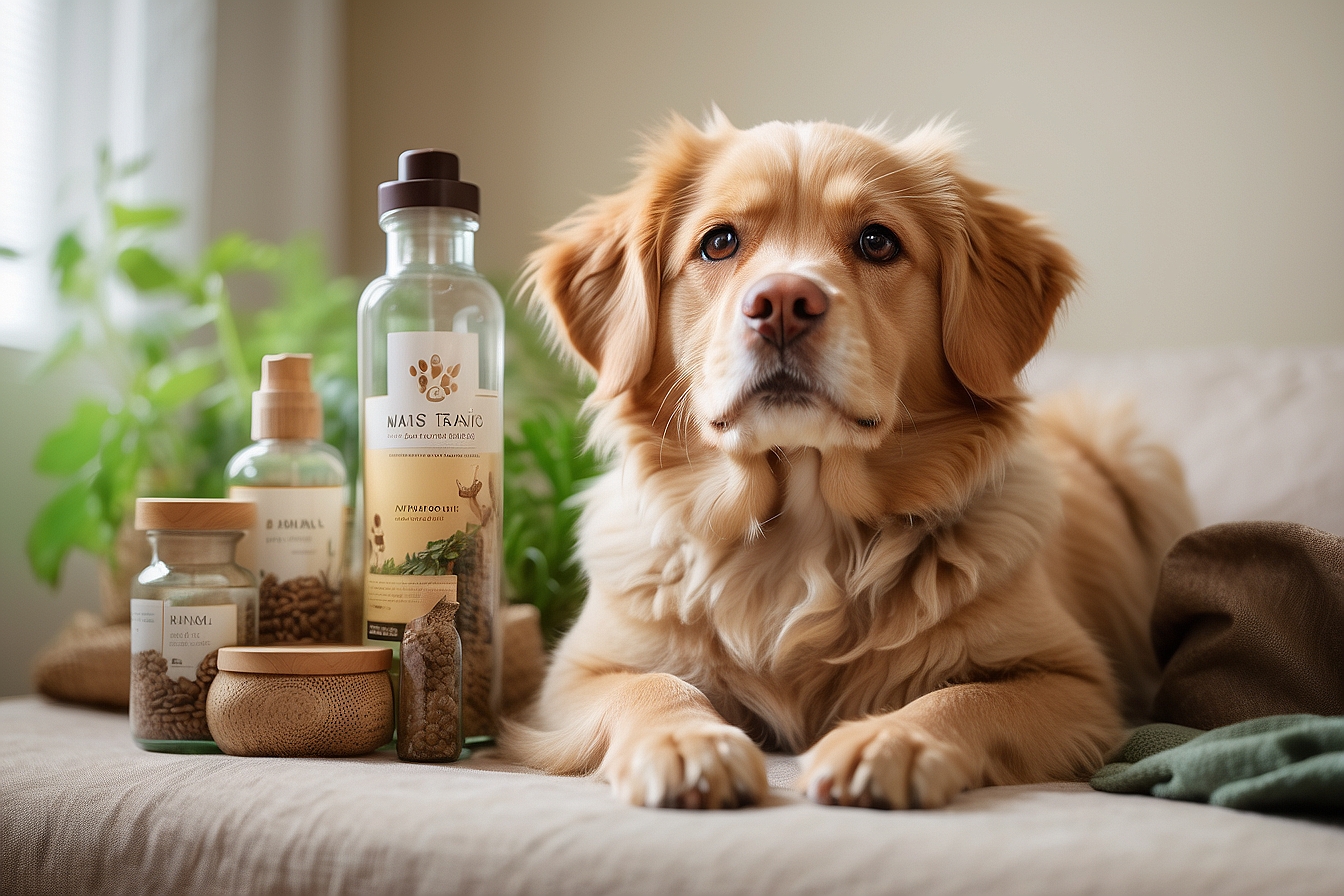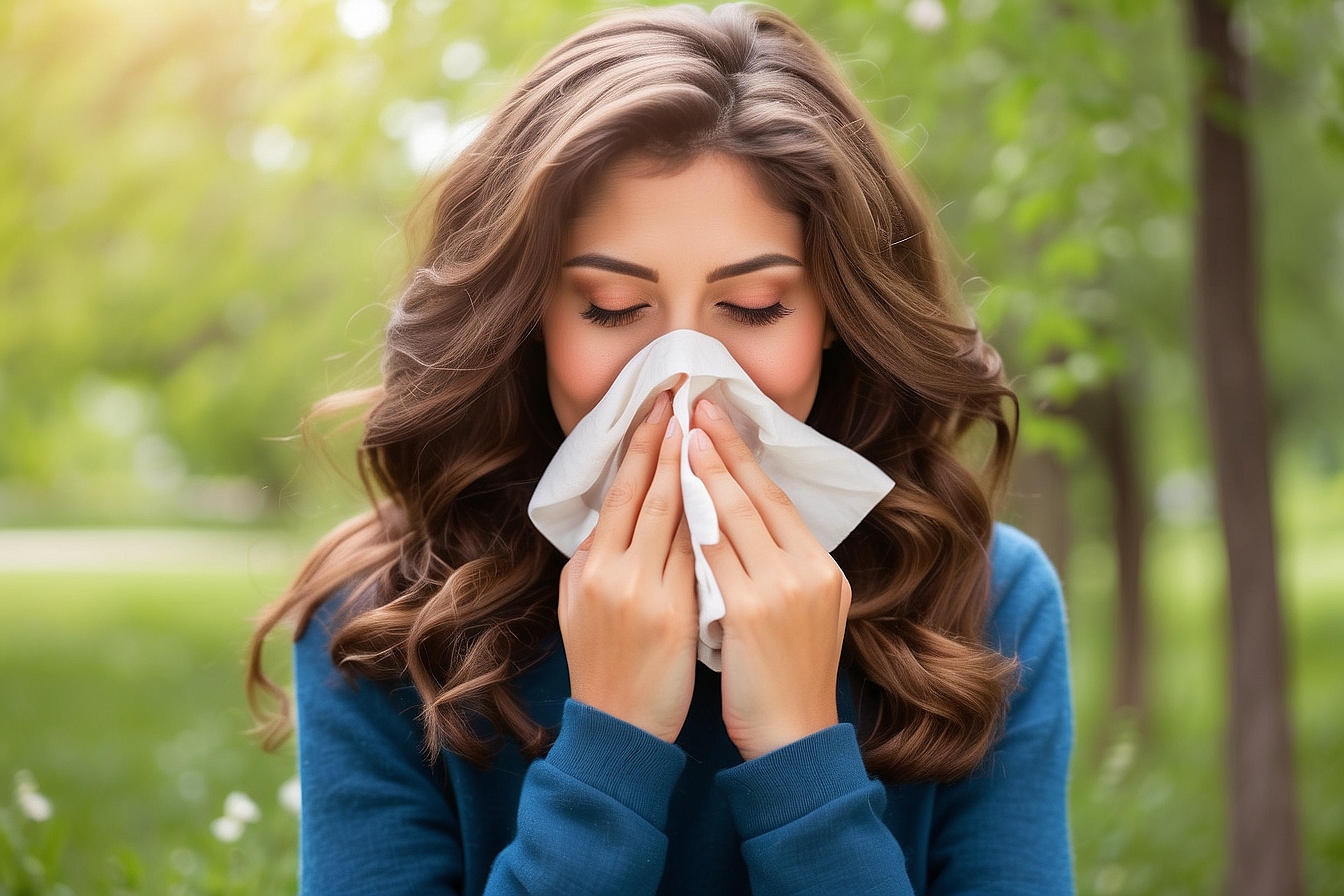Have you ever found yourself wriggling beneath the covers, desperately seeking the comfort of a deep sleep that just won’t come? Rest assured, it’s a common plight; indeed, we’ve all experienced those troublesome nights at some point.
It’s rather unsettling to realise that one in three individuals grapples with mild insomnia or more serious sleep disturbances. But fear not! Our forthcoming article promises to shed light on how exactly our surroundings can make or break our quest for peaceful slumber.
Moreover, we’ll introduce you to an array of trustworthy natural remedies designed to help you drift off effortlessly into dreamland. So join us as we delve into obtaining tranquil rest the natural way – your zzz’s are about to get a whole lot cosier!
Key Takeaways
- Environmental factors such as room temperature, noise levels, and exposure to artificial light can majorly impact our sleep patterns; hence adjusting these can help improve sleep quality.
- A variety of natural sleep aids like melatonin, lavender, valerian root, German chamomile, passionflower, hops and CBD have been shown to aid relaxation and promote better sleeping habits.
- It is vital for pregnant or breastfeeding individuals and children to consult healthcare professionals before using any natural sleep aids due to possible sensitivity or side effects.
- When considering the use of these remedies for improved slumber, it’s important to be mindful of suitable dosage levels and potential interactions with other medications you may be taking.
- Taking into account both environmental adjustments in your bedroom and integrating some of the mentioned natural remedies could provide a comprehensive approach towards achieving restful nights.
The Impact of Environmental Factors on Sleep
Environmental factors such as the physical, built, and social environment can significantly impact an individual’s sleep quality and duration. From noise pollution to ambient light, these external factors can disrupt circadian rhythms and contribute to sleep disorders.
Understanding how these environmental stimuli affect our sleep can lead to better overall health and well-being.
Physical Environment
Our physical environment plays a crucial role in how well we sleep. A room that’s too hot or cold, for instance, can disrupt our body’s natural sleep rhythms. We need to consider the materials around us as well—beds that are too firm or pillows that don’t support the neck correctly can lead to restlessness.
Light is another significant factor impacting melatonin production and circadian rhythm. Too much artificial light, especially blue light from screens, tricks our brains into thinking it’s still daytime.
To improve sleep quality, we advocate for darkened rooms and turning off electronic devices an hour before bedtime.
Noise pollution is often overlooked but can be a big disturber of a peaceful night’s rest. We aim to create environments that reduce noise interference – think about using soundproofing materials or white noise machines to block out unwanted sounds.
As environmentally conscious individuals who support conservation and environmental wellbeing, we’re always exploring ways to harmonise our sleeping space with nature. This means choosing eco-friendly materials and reducing energy consumption whenever possible.
Looking beyond the four walls of our bedroom can also influence how we doze off at night; let’s step into considering how built surroundings affect our slumber.
Built Environment
The built environment plays a significant role in our sleep quality. The design and layout of our bedrooms, the comfort of our mattress, the presence of electronic devices, and the level of noise pollution all impact how well we sleep.
Creating a peaceful and clutter-free bedroom can significantly improve sleep quality. By ensuring that our sleeping space is conducive to relaxation, we can promote better overall health.
Next, let’s delve into the impact of neighborhood disadvantage on sleep patterns.
Neighborhood Disadvantage
Neighborhood disadvantage can significantly impact sleep quality, with factors such as noise pollution, safety concerns, and lack of green spaces contributing to disrupted sleep patterns.
High levels of noise from traffic or neighbors can disturb the ability to fall asleep and stay asleep throughout the night. Additionally, feelings of insecurity due to high crime rates in a neighborhood can lead to heightened stress and anxiety, further hindering the ability to relax and achieve restful sleep.
Lack of access to safe outdoor areas may also limit opportunities for physical activity which is crucial for promoting healthy sleep.
Creating an environment conducive to better sleep may involve advocating for quieter neighborhoods, improved community safety measures, and increased green spaces. By addressing these issues at a local level through community engagement and advocacy efforts, we can contribute towards creating environments that support better sleep patterns for everyone.
Social Environment
Moving from the impact of neighbourhood disadvantage to the social environment, it’s important to recognise that our social surroundings play a significant role in influencing sleep patterns and overall well-being.
Social connections, support systems, and community engagement all contribute to creating a positive atmosphere that promotes restful sleep. Engaging with friends, family, or local communities can alleviate stress and anxiety, ultimately fostering an environment conducive to better sleep.
Participating in group activities or sharing experiences strengthens bonds and positively impacts emotional health while also promoting sounder sleep.
Additionally, being part of a supportive social network provides opportunities for discussing concerns related to insomnia or sleep troubles which can lead to finding solutions or seeking advice on healthy sleeping habits.
Research has shown that individuals who are integrated into active social circles tend to experience not only improved mental health but also better quality sleep compared to those who lack strong social ties.
Ambient Environment
Now turning our attention to the ambient environment where we spend our nights, it’s crucial to consider factors such as noise levels, temperature, and lighting. A quiet and dimly lit bedroom promotes relaxation and helps signal the body that it’s time for rest.
Additionally, ensuring a comfortable room temperature can aid in creating an ideal sleep environment. Embracing these aspects of the ambient environment can contribute significantly to better sleep quality.
When evaluating the role of the ambient environment in promoting healthy sleep patterns, it is essential to prioritise creating a calm and soothing atmosphere. By implementing these simple adjustments within your sleeping space, you can positively impact your overall sleep health without resorting to excessive energy consumption or reliance on artificial aids.
The Relationship Between Environmental Factors and Sleep Health
Environmental factors play a crucial role in sleep health. The physical environment, including noise levels and air quality, can significantly impact the quality of our sleep. The built environment influences our exposure to natural light, which in turn affects our circadian rhythms.
Neighborhood disadvantage may lead to increased stress and anxiety, contributing to sleep disturbances. Additionally, social environments can influence our mental well-being and consequently affect our ability to fall asleep and stay asleep.
Moreover, ambient environments like temperature and humidity also play a part in determining how well we rest at night. Understanding these connections can help us make informed choices about improving our sleeping conditions and overall sleep hygiene.
By recognising the impact of environmental factors on sleep health, we can take steps to create a more conducive sleeping environment for ourselves.
Moving forward, let’s explore common natural sleep aids that may be beneficial for improving overall sleep quality.
Common Natural Sleep Aids
Some common natural sleep aids include melatonin, lavender, valerian, German chamomile, passionflower, hops, cannabidiol (CBD), tart cherry juice, magnesium, GABA and glycine. These supplements and herbs can help promote better sleep and alleviate insomnia without the use of medication.
Melatonin
Melatonin, a hormone that regulates the sleep-wake cycle, can be a helpful supplement for promoting restful sleep. It is naturally produced by the pineal gland in response to darkness and helps signal the body that it’s time to rest.
Melatonin supplements, available over-the-counter, may aid individuals with occasional sleep disturbances or jet lag. They are commonly used as a short-term solution for managing disrupted sleep patterns due to environmental factors such as shift work or irregular schedules.
It is important for adults mindful of their environmental impact to choose sustainable melatonin products when considering supplementation.
If opting for melatonin as an insomnia remedy, consider choosing sustainably sourced options in recyclable packaging. Additionally, look out for organic and cruelty-free labels where possible—reflecting your commitment to both personal wellness and environmental stewardship.
Lavender
Lavender, commonly known for its delightful fragrance, is a popular natural sleep aid. Its soothing and calming properties make it an effective remedy for reducing anxiety and promoting relaxation.
Lavender can be used in various forms such as essential oils, sachets, or even added to bathwater to create a tranquil environment conducive to better sleep. Research has shown that inhaling the scent of lavender can help improve the quality of sleep by reducing stress and tension.
Furthermore, incorporating lavender into your bedtime routine can contribute to a more restful night’s sleep. Many individuals find that using lavender as part of their nightly wind-down process helps them unwind from the stresses of the day and prepares both mind and body for sleep.
Creating a comforting atmosphere with the gentle aroma of lavender may be just what you need to achieve a peaceful slumber amidst life’s daily demands.
Valerian
Valerian, a perennial flowering plant native to Europe and Asia, has been used for centuries as a natural sleep aid due to its sedative properties. The root of the valerian plant contains compounds that have been shown to promote relaxation, reduce anxiety, and improve sleep quality.
Valerian is often consumed in the form of tea or as a dietary supplement, offering an alternative to synthetic sleep aids. Research suggests that valerian may be particularly beneficial for individuals experiencing stress-related insomnia or difficulty falling asleep.
Additionally, the use of valerian aligns with environmentally conscious practices as it offers a sustainable and natural approach to improving sleep without relying on pharmaceutical interventions.
German Chamomile
German Chamomile is a popular herbal sleep aid renowned for its calming and soothing properties. It is often used to promote relaxation, reduce anxiety, and support better sleep quality.
German Chamomile contains compounds that can help ease muscle tension, calm the mind, and encourage a more restful night’s sleep. Its gentle sedative effects make it an ideal natural remedy for those seeking nonprescription sleep aids.
Additionally, German Chamomile is known for its anti-inflammatory properties which can further contribute to creating a tranquil sleeping environment.
This herb has been traditionally used as a holistic approach to sleep management due to its stress-relieving qualities. The environmental benefits of using German Chamomile lie in its natural cultivation process without harmful pesticides or chemicals that could disrupt ecosystems.
Passionflower
Moving on from German Chamomile, another herbal sleep aid to consider is Passionflower. This beautiful flowering plant has been traditionally used to aid in relaxation and improve sleep quality.
Studies have shown that passionflower may help reduce anxiety and promote better sleep by increasing levels of GABA, a neurotransmitter that helps calm the brain.
Passionflower can be consumed as a tea, tincture, or supplement and is generally considered safe for short-term use. However, it’s essential to consult with a healthcare professional before incorporating any new sleep aid into your routine, especially if you are taking other medications or have underlying health conditions.
Hops
Hops, commonly known for their role in brewing beer, have been used as a natural sleep aid due to their potential calming effects. Studies suggest that hops may help reduce anxiety and promote better sleep quality.
The sedative properties of hops can be attributed to certain compounds found in the plant, such as methylbutenol and humulone. These compounds work synergistically to exert mild sedative effects.
Additionally, German Chamomile is another herbal remedy with similar relaxing properties that can be beneficial for those seeking natural alternatives for improving sleep quality and managing stress.
Cannabidiol (CBD)
Cannabidiol (CBD) promotes relaxation and may help calm the mind, which can be beneficial for improving sleep quality. CBD interacts with the body’s endocannabinoid system to regulate various functions, including sleep patterns.
Its natural origin aligns with environmentally conscious individuals seeking holistic approaches to sleep management and natural remedies for sleep. Incorporating CBD into a bedtime routine might offer a potential alternative to conventional sleep aids, contributing to a more sustainable approach towards improving sleep health.
Moving on from natural remedies like CBD, let’s explore another herb that has shown promise in promoting better sleep – Tart Cherry Juice.
Tart Cherry Juice
Tart Cherry Juice contains high levels of melatonin, a hormone that helps regulate sleep-wake cycles. It may help reduce the time it takes to fall asleep and improve overall sleep quality.
The anthocyanins in tart cherries have anti-inflammatory properties, which can benefit individuals experiencing conditions such as arthritis or gout.
Additionally, research suggests that consuming tart cherry juice might lead to an increase in total sleep time and efficiency. A study found that participants who consumed tart cherry juice experienced improvements in their insomnia severity index scores when compared to those who were given a placebo.
Magnesium
Magnesium plays a crucial role in regulating neurotransmitters that control the sleep-wake cycles. It helps to relax muscles and calm the nervous system, promoting better sleep quality.
Additionally, magnesium has been found to reduce levels of cortisol, the stress hormone, which can often interfere with restful sleep. Consuming magnesium-rich foods such as leafy greens, nuts, seeds, and whole grains or using magnesium supplements may help improve sleep quality naturally.
It’s important to note that excessive intake of magnesium supplements can lead to digestive issues or other adverse effects, so it’s essential to consult with a healthcare provider before incorporating them into your daily routine.
Furthermore, being mindful of environmental factors that affect magnesium levels in food and water sources is essential for maintaining a healthy balance of this vital mineral for improved sleep health.
GABA
GABA, or gamma-aminobutyric acid, is a naturally occurring amino acid that acts as a neurotransmitter in the brain. It blocks certain signals in the central nervous system and has been shown to reduce feelings of stress, anxiety, and fear by decreasing neuron activity.
GABA may also help improve sleep quality by promoting relaxation and reducing nerve excitability. Incorporating GABA into your natural sleep aid regimen could potentially support better sleep patterns by calming the mind and easing tension.
Moving on to another essential natural sleep aid – Glycine. This amino acid plays a crucial role in regulating neurotransmitters that control sleep cycles and can be found in various food sources such as meat, fish, dairy products, and legumes.
Glycine
Glycine, an amino acid and neurotransmitter, plays a vital role in regulating sleep quality and promoting relaxation. It can help to ease anxiety and improve the overall quality of your sleep.
Glycine works by lowering your body temperature, which is essential for falling asleep, and it also has a calming effect on the brain. Including glycine in your natural sleep aid routine may assist in achieving better sleep without any harmful side effects.
Consuming glycine as part of your natural sleep regimen can effectively support healthy circadian rhythms and contribute to improved overall well-being. This amino acid is a safe alternative to synthetic sleep aids, making it an ideal choice for individuals seeking natural ways to enhance their sleep patterns.
Safety Considerations for Natural Sleep Aids
It’s important to consider safety when using natural sleep aids. Consulting with a doctor is necessary, especially for pregnant or breastfeeding individuals and children. Always follow recommended dosages and be aware of potential interactions with other medications.
Adults
For adults, it’s essential to be cautious when using natural sleep aids, especially if you have existing health conditions or are taking other medications. Consulting with a healthcare professional before starting any new sleep aid is crucial to ensure that it won’t interact negatively with your current treatment plan.
Additionally, always follow the recommended dosage and instructions provided on the product label. It’s also important to consider your individual sensitivities and allergies when trying out different natural sleep aids.
Prioritising safety and being well-informed about potential side effects can help you make the best decisions for improving your sleep quality.
Children
Children can be particularly sensitive to environmental factors that affect sleep. Creating a peaceful and calming bedroom environment is essential for promoting healthy sleep patterns in children.
This includes reducing exposure to noise, light, and electronic devices. Using natural sleep aids such as lavender or chamomile can provide a gentle way to support relaxation and better sleep quality in children.
Considering the impact of environmental factors on children’s sleep is crucial for their overall health and well-being. Making small adjustments to create a soothing sleep environment can significantly contribute to improving their sleep hygiene, helping them feel more rested and ready for the day ahead.
Pregnant or Breastfeeding Individuals
Pregnant or breastfeeding individuals should exercise caution when considering natural sleep aids. It’s essential to consult with a healthcare professional before using any herbal remedies due to potential effects on the developing foetus or infant.
Safety is paramount for expectant or nursing mothers, so it’s crucial to prioritise scientific evidence and medical advice when seeking alternative sleep remedies.
Environmental factors and sleep health are closely linked, but pregnant or breastfeeding individuals need to approach natural sleep aids with particular care. Always seek guidance from a doctor before incorporating any new regimen into your routine during this delicate time.
Consulting with a Doctor
It’s essential to consult with a doctor before trying any natural sleep aids, especially if you have existing health conditions or are taking medications. A healthcare professional can provide personalised guidance and ensure that the chosen sleep aid is safe and suitable for you.
They can also help monitor potential interactions with any other treatments or supplements you may be using.
Having regular conversations with your doctor about your sleep habits, environmental factors, and any concerns related to sleep quality can offer valuable insights into managing stress and achieving better sleep.
Seeking professional advice ensures that you make informed decisions regarding natural remedies while prioritising your overall well-being.
Conclusion
In conclusion, environmental factors play a significant role in sleep quality. Natural sleep aids offer a range of options to support healthy sleep patterns. Consider consulting with a healthcare professional before trying any new remedies.
Take proactive steps to create a conducive environment for better sleep.
FAQs
1. Can the natural physical environment affect how well I sleep?
Yes, environmental factors like light and noise levels in your bedroom can have a big impact on your sleep quality.
2. What are some natural ways to improve sleep if I’m feeling stressed?
You can try using herbal sleep aids or create a bedtime routine that includes anxiety relief strategies to help deal with stress and improve your sleep.
3. Are there any specific herbs known for inducing sleep?
Certainly! Sleep-inducing herbs such as chamomile, valerian root, and lavender are widely used as natural aids for those suffering from sleep deprivation.
4. How does stress link to my sleeping problems?
Stress triggers alertness in the body which can make it hard for you to relax and fall asleep, often leading to issues like insomnia or disrupted sleep patterns.





